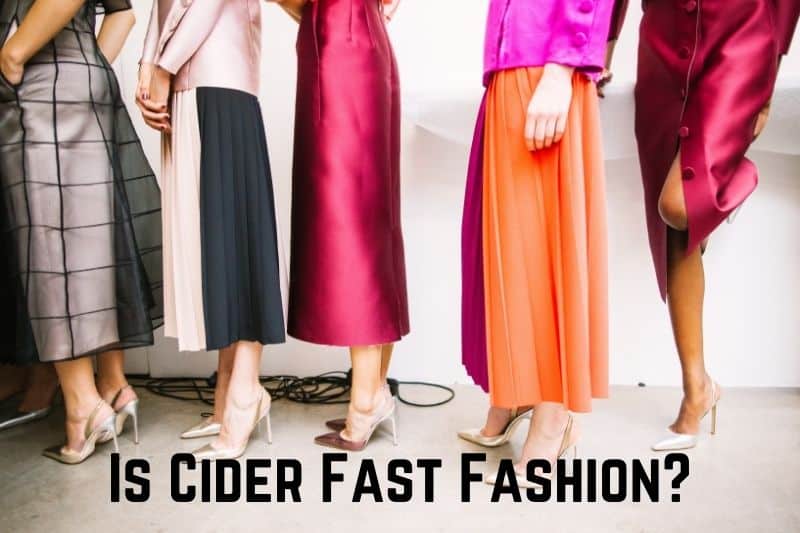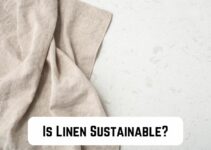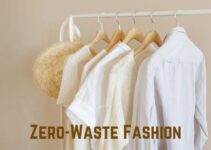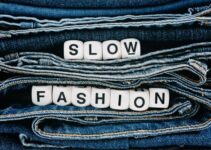In today’s digital society, instant gratification has become the norm. To cater to the culture of consumerism, many brands are fast fashion brands. This means they create new designs of clothes quickly, and have them available cheaply to consumers.
One such newcomer to the fashion industry is Cider. With its vintage feel and sustainability options, it seems like Cider is a better choice than its predecessors.
Is Cider really as ethical and sustainable as it claims to be? Or is it just another greenwashing strategy? Here’s all you need to know about Cider and whether or not the brand is worth your money!
Read: What is Slow Fashion and How Can It Help the Planet?
What is Cider?
If you’re not familiar with Cider yet, it’s a new fashion brand founded in 2020 that highlights size inclusivity with a vibrant global feel. It’s a digital direct-to-consumer company that offers everything a fashion-conscious Gen Z would want. From dresses, tops, bottoms, swimwear, accessories, home decor, and even pet clothing, they’ve got it all.
What differentiates Cider from other fashion brands is their presence in Gen Z’s favorite social media platform – TikTok. On their website, the brand claims to operate on a “smart fashion” model where they only produce goods based on what customers want. Cider uses direct feedback from its customers to create clothing that suits customers’ demand.
By using this so-called “smart fashion” strategy and analyzing TikTok trends, Cider manages to grab its demographic’s attention. The brand provides items that suit specific viral micro-trends, such as vintage-looking patterned trousers Harry Styles wears or the 13 Going on 30 dress.
Another initiative the brand claims to have is to produce things in smaller batches to cut down on waste while still keeping pieces affordable. There’s also a statement of commitment to decrease its environmental impact by using biodegradable packaging and creating clothes with recycled fabrics.
Is Cider Ethical?
To answer this simply, no, it isn’t. For a brand to be considered ethical, it needs to have sustainable and fair practices in terms of labor, material sourcing, and marketing efforts. Currently, Cider fails to fulfill all these requirements.
Cider’s head office is located in Los Angeles, but its suppliers are from Guangzhou, Hangzhou, and Dongguan, in China. It makes a lot of sense since China is the epicenter of fast fashion production, and it’s also where Shein, another fast fashion behemoth, has its production site.
Unfortunately, factories in Guangzhou are well-known for exploiting cheap labor to meet the ever-increasing demands of customers.
The silver lining is Cider has disclosed some information regarding its suppliers. By going through their list, we can see that Cider has chosen companies that have ethical certification from international authorities. Their suppliers have also implemented environmental protection efforts by saving energy, reducing emissions, and increasing efficiencies.
Although Cider might pass the ethical bar when it comes to suppliers, an issue that Cider is still facing is its designs. Many have accused the fashion brand of cultural appropriation and stealing designs.
An example of this is when Cider decided to release a line that’s inspired by the traditional Chinese garment, the Qipao. The public commented that Cider’s design is highly insensitive and encourages the fetishization of Chinese culture.
Commenters have also highlighted similarities between Cider’s designs with small independent designers. A London-based designer, Lydia Bolton, has accused Cider of copying her apple pumpkin jacket. Lydia contacted Cider to stop using her designs, but the fashion brand refused as it’s not trademarked yet. While this move might be legal, it sure isn’t ethical!

Is Cider Sustainable?
Put simply, no. Like any other fast fashion brand, Cider is not sustainable. Although it has claims of sustainability on its website, some of its practices say otherwise. To examine this further, let’s look at their suppliers, materials, and product release cycle.
We’ve mentioned that Cider has listed its suppliers on its website, a commendable effort compared to their competitors. Although all suppliers have been certified ethical by governing bodies, only one has claimed to prioritize environmental protection efforts. Other suppliers are focusing their attention on protecting workers’ rights and a better work environment.
Cider stated that it uses biodegradable packaging and creates clothes with recycled fabrics. There’s also a line that’s made from bamboo. But these are a fraction of the brand’s entire portfolio, where the majority still uses synthetic fabrics such as polyester, spandex, or nylon.
Clothing made from synthetic materials can create long-term pollution. First, they’re non-biodegradable, which means they’ll last for hundreds of years piling up as waste in landfills. They’re also contributing to microplastic pollution when you wash your clothes.
The production process of these materials also consumes large amounts of water and energy, as well as releasing massive amounts of carbon emissions into the atmosphere.
Their practice of creating new collections for every trend is also damaging to the environment. By releasing new lines each week at a cheap price, Cider is encouraging overconsumption and for customers to ditch their older clothes.
In the end, no amount of greenwashing tactics can overcome the fact that most of their products will end up in the landfill.
Is Cider Fast Fashion?
Yes, Cider is classified as a fast fashion brand. As mentioned, Cider keeps up with every trend that’s viral on TikTok, which means they release multiple collections every month. This aligns with what being a fast fashion brand is all about – creating products quickly and as cheaply as possible for customers.
Cider releases a new collection every week, as they keep up with around 52 micro trends of the year. Most of their products are also very cheap, some as low as $5.
This strategy is similar to other fast fashion brands, such as Shein and Fashion Nova. Even if the company has sustainable claims, there’s no denying that it’s still a fast fashion brand at its core.
Is Cider Legit?
Yes, Cider is a legit fashion brand. You can safely order from their online store and expect to receive their products within a week. A quick look on Trustpilot will give you an objective picture of what users are saying about this brand, like praising Cider for the brand’s swift delivery and cheap prices.
On the other hand, its quality is a different story altogether. You might be tempted to buy their clothing when you see the pictures online, but you should keep your expectations low. Customers have complained about loose threads and weird fit, and some pieces have their buttons loose on the first try.
Several reviewers have also put Cider’s quality in the same category as Shein, as its sizings are off and materials disintegrate quickly. Another bad news is its return policy. Most reviews have not received their reimbursements for returned goods after several months.

Sustainable Alternative to Cider
If you’re interested in being more environmentally conscious, you can choose from some of these companies instead.
Read: Is Free People Ethical, Sustainable, or Fast Fashion?
Made Trade
If you love supporting indie designers, this can be your choice. Made Trade is not a fashion brand but it’s an online marketplace where you’ll find 150 small businesses, creators, and designers. All brands in Made Trade are locally sourced and use low-impact materials such as bamboo.
Grey State
This is a fashion brand that suits anyone who loves a classic silhouette and style. The women-owned company is ethical and sustainable. It has a LEED Gold certification and is even powered by solar energy. Grey State believes that by focusing on classic pieces, there’s less chance of their products ending up in landfills after a month or two.
Tentree
Buy your clothes and help plant a tree? Yes, please! This brand plants 10 trees for every item you purchase on their website. It also uses the most sustainable materials to create eco-friendly clothing and other essentials. The trees are meant to offset the effect of shipping your garments as the brand strives to achieve carbon neutral products.
Underprotection
This sustainable fashion brand focuses more on lingerie, hosiery, loungewear, and swimwear. Similar to other brands we’ve mentioned, Underprotection focuses on pieces that are long-lasting and can be enjoyed for years to come. The brand also uses environmentally friendly materials and steers clear of fur, leather, or any type of animal skin in its products.
Unlike fast fashion brands, these companies focus on creating products that can last you years to come. They also only use environmentally friendly materials that are more biodegradable than synthetic ones.
Another option that can be cheaper is to go thrifting and buy secondhand clothes. Not only will you be recycling clothes, but your wallet will also be happier!
Final Thoughts
The year we are in crisis. Overconsumption is the norm, and the fast fashion industry is one of the guiltiest parties contributing to climate change and unethical practices. At the end of the day, you’ll need to decide whether you want low-quality cheap clothes that come from an unsustainable business, or you spring for something of higher quality from a way more ethical company.




